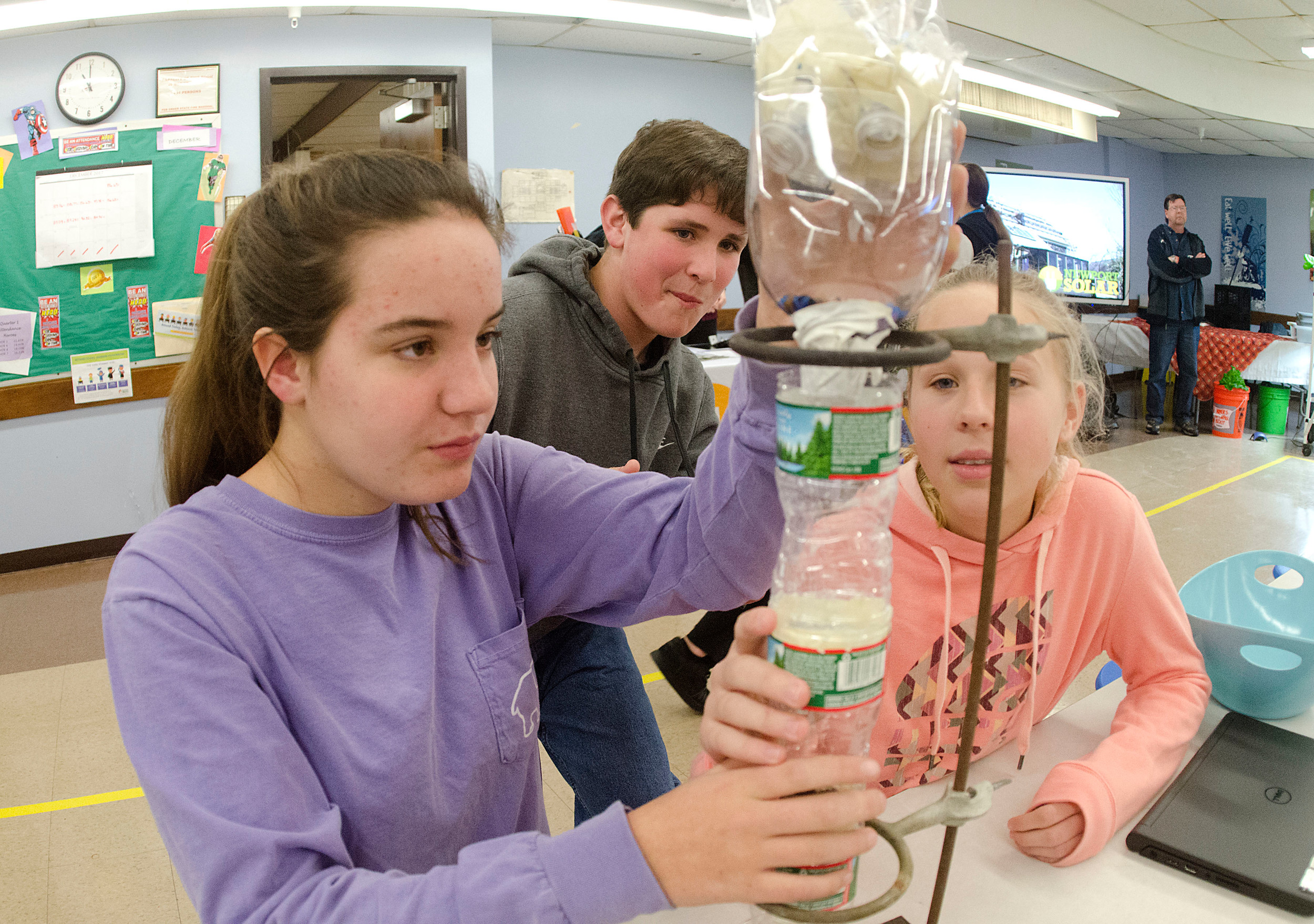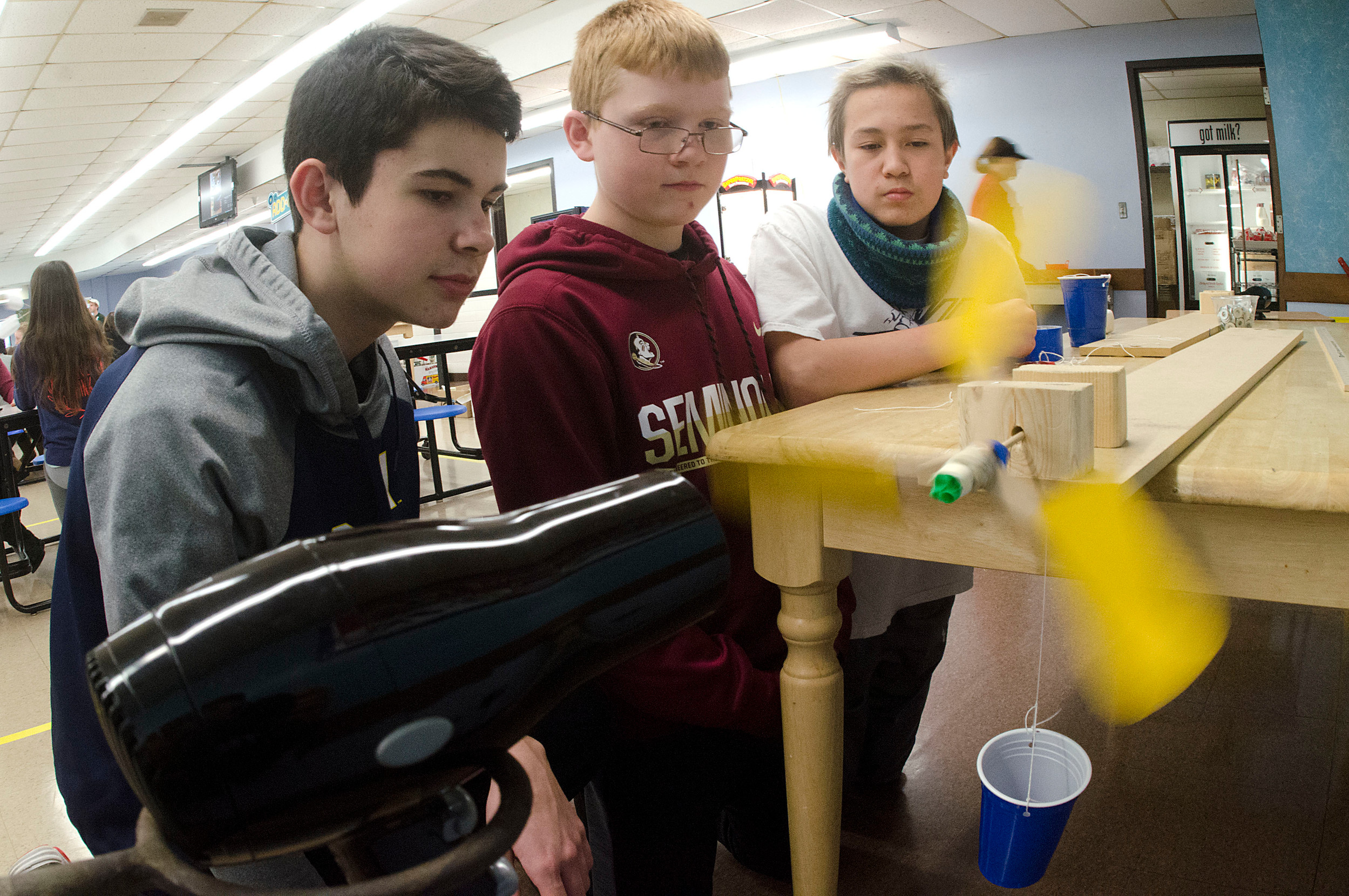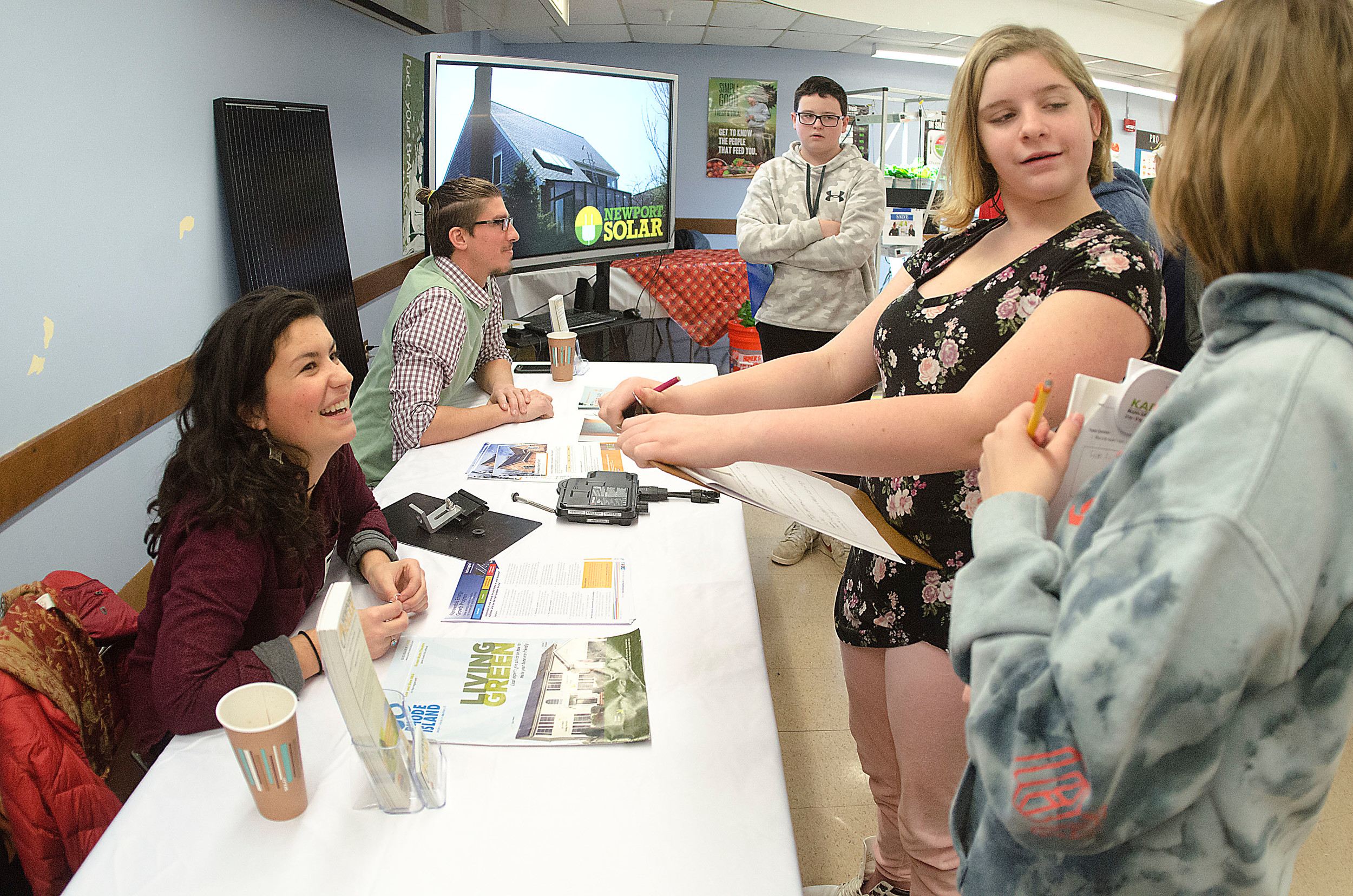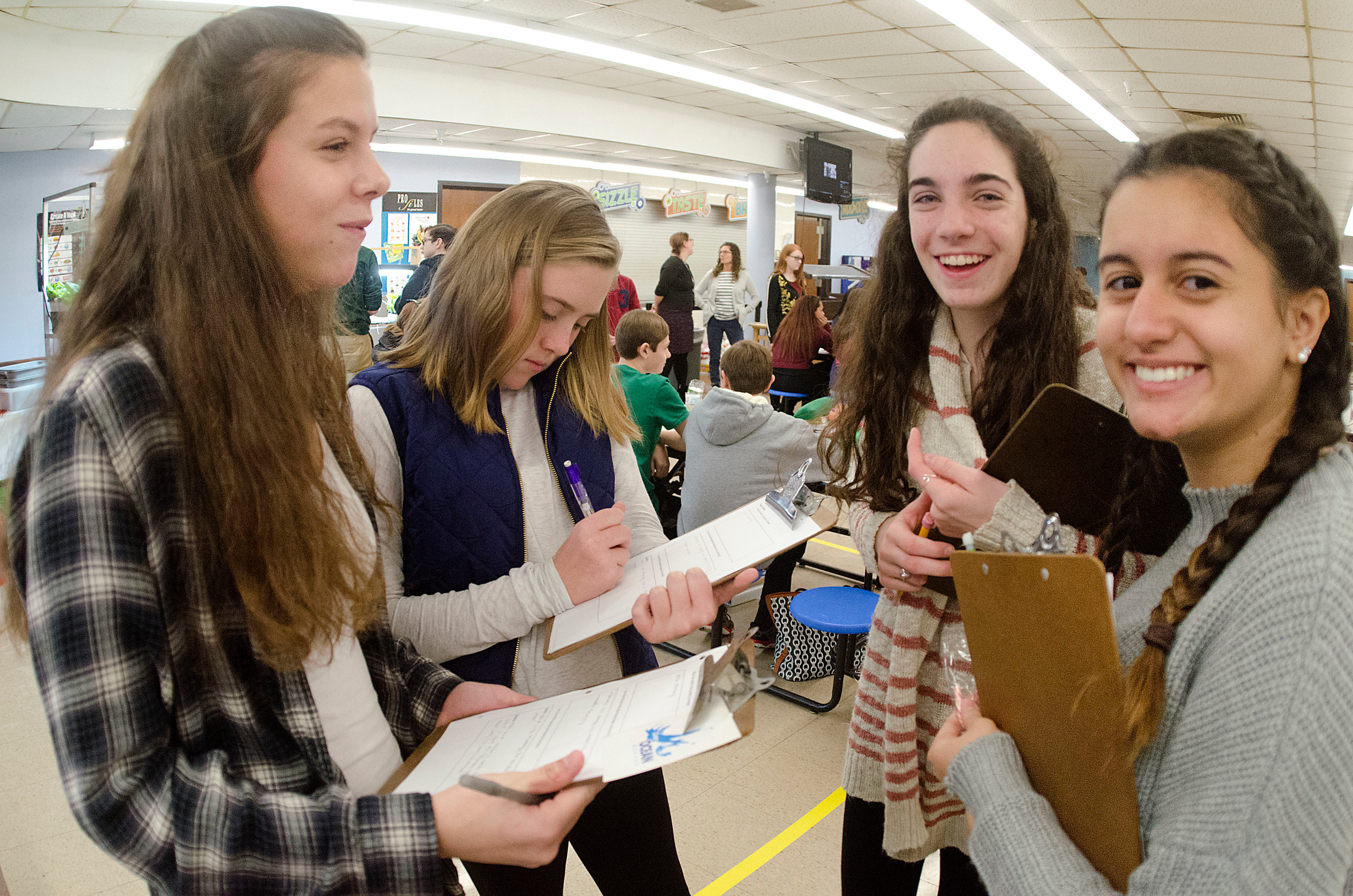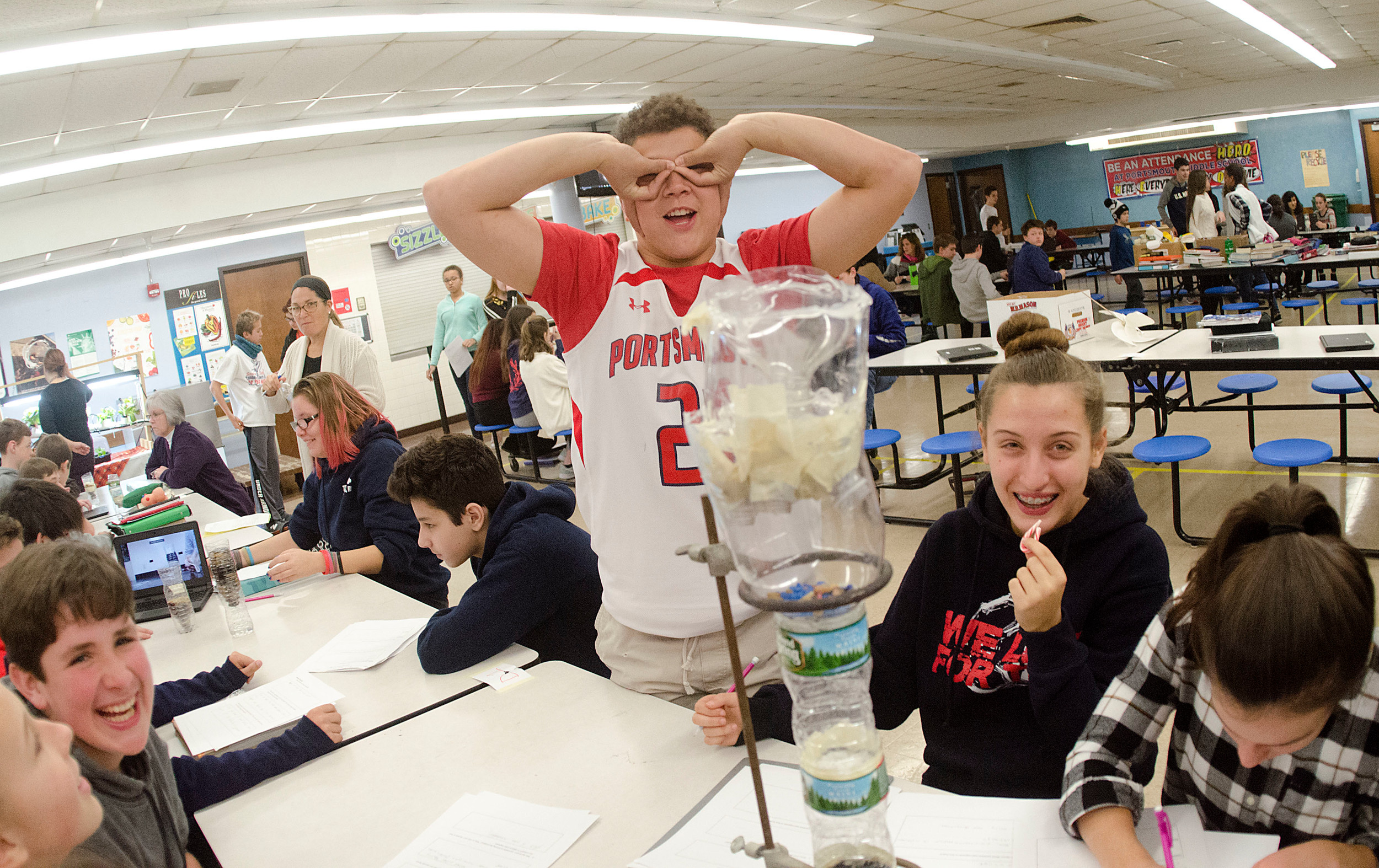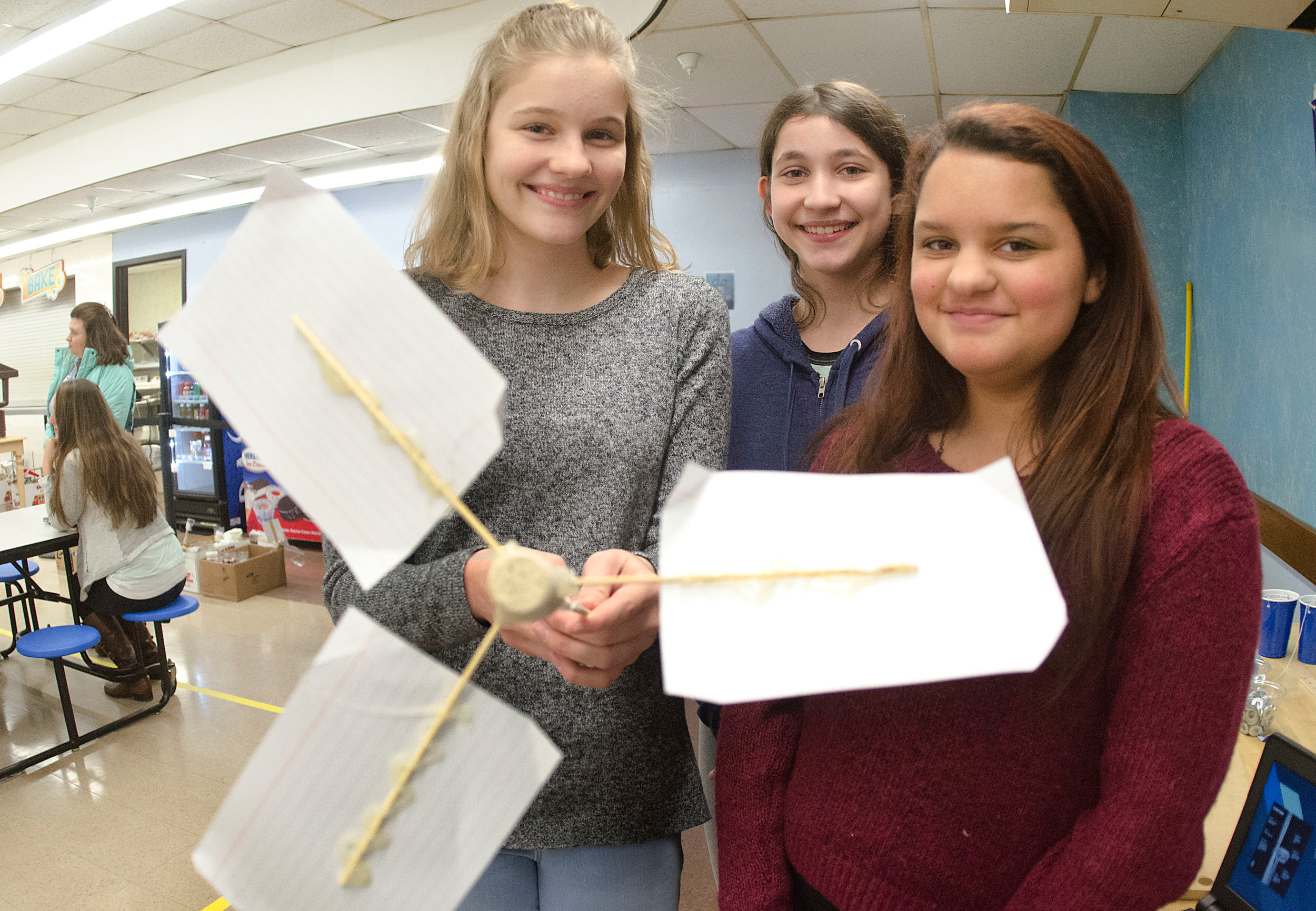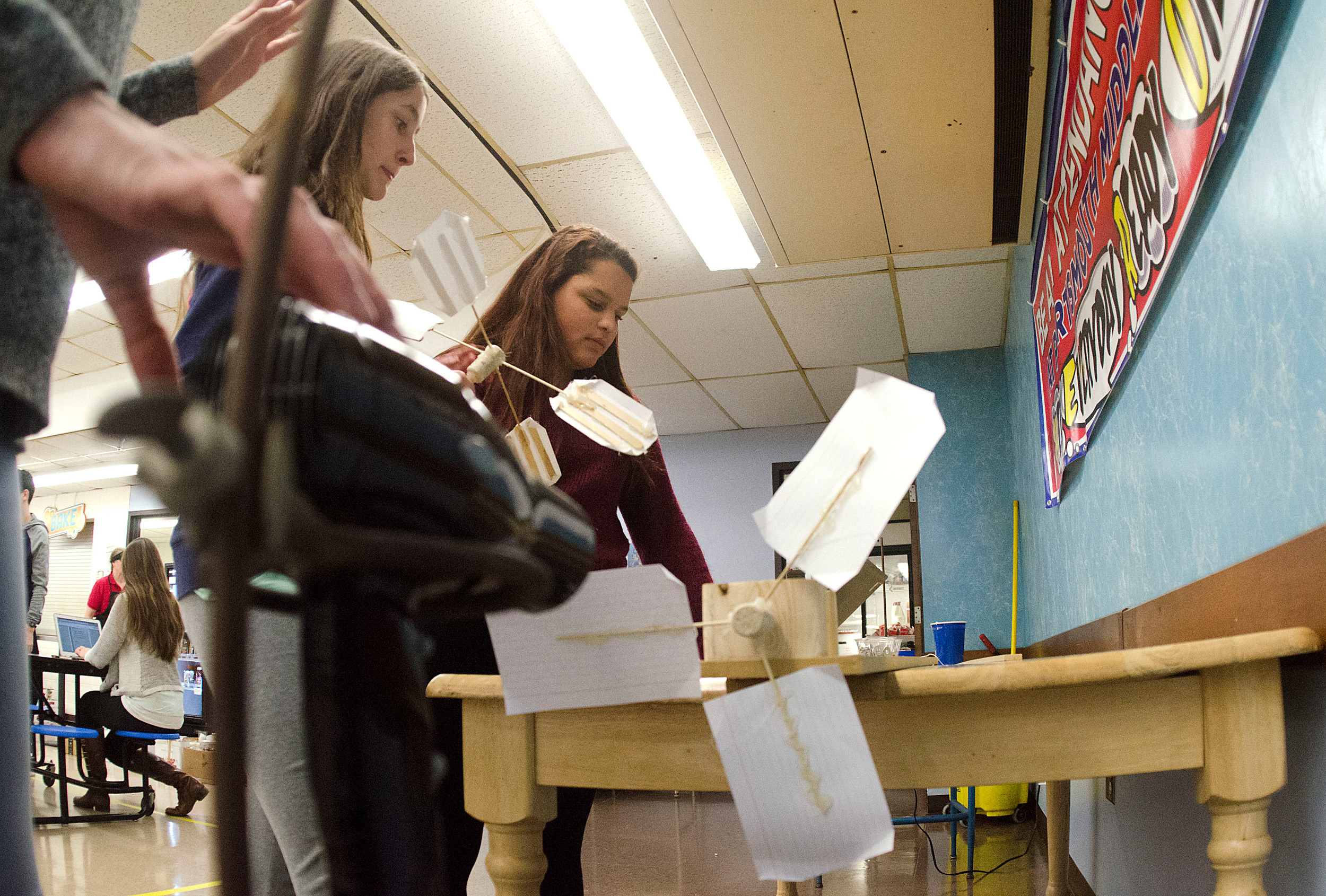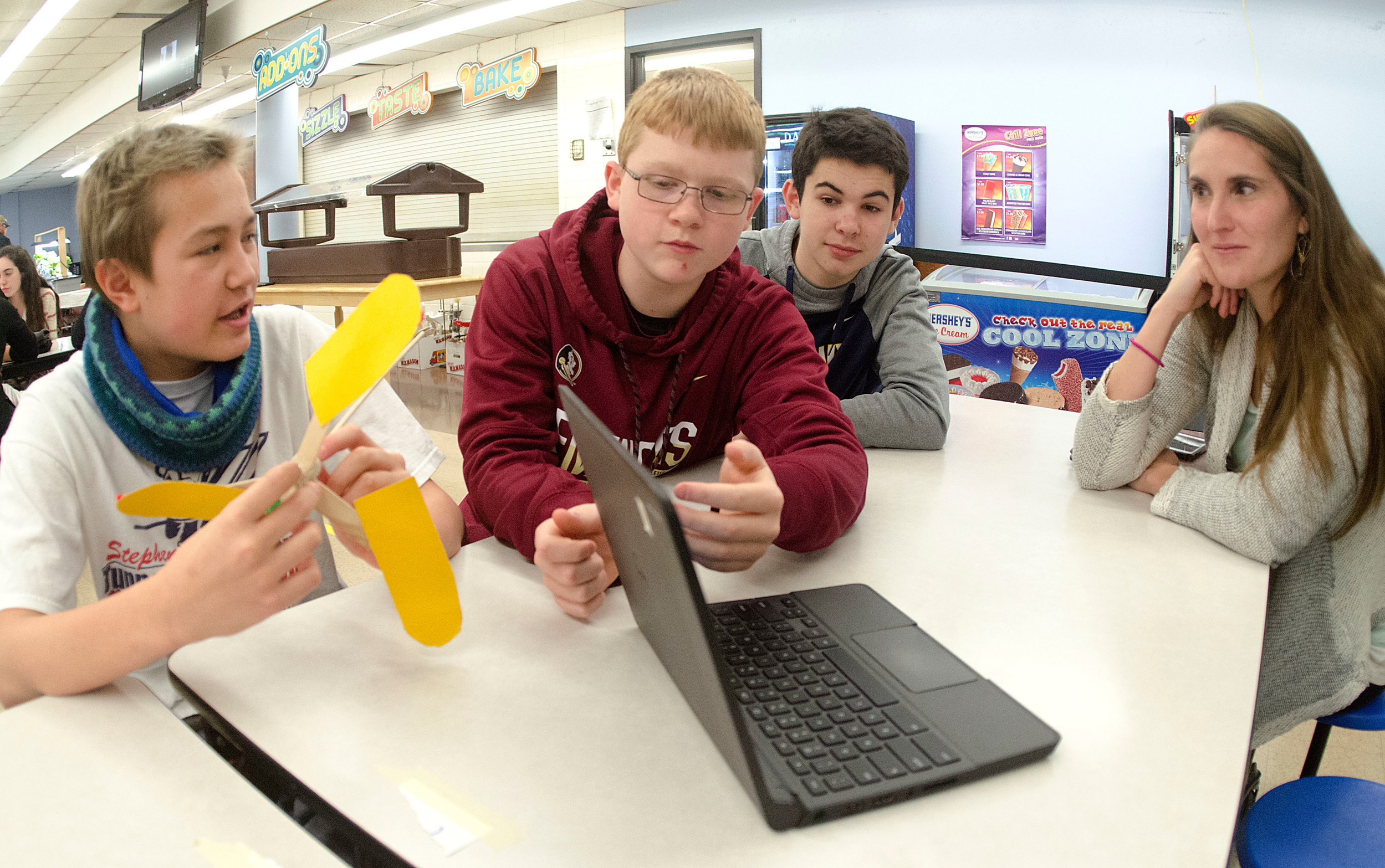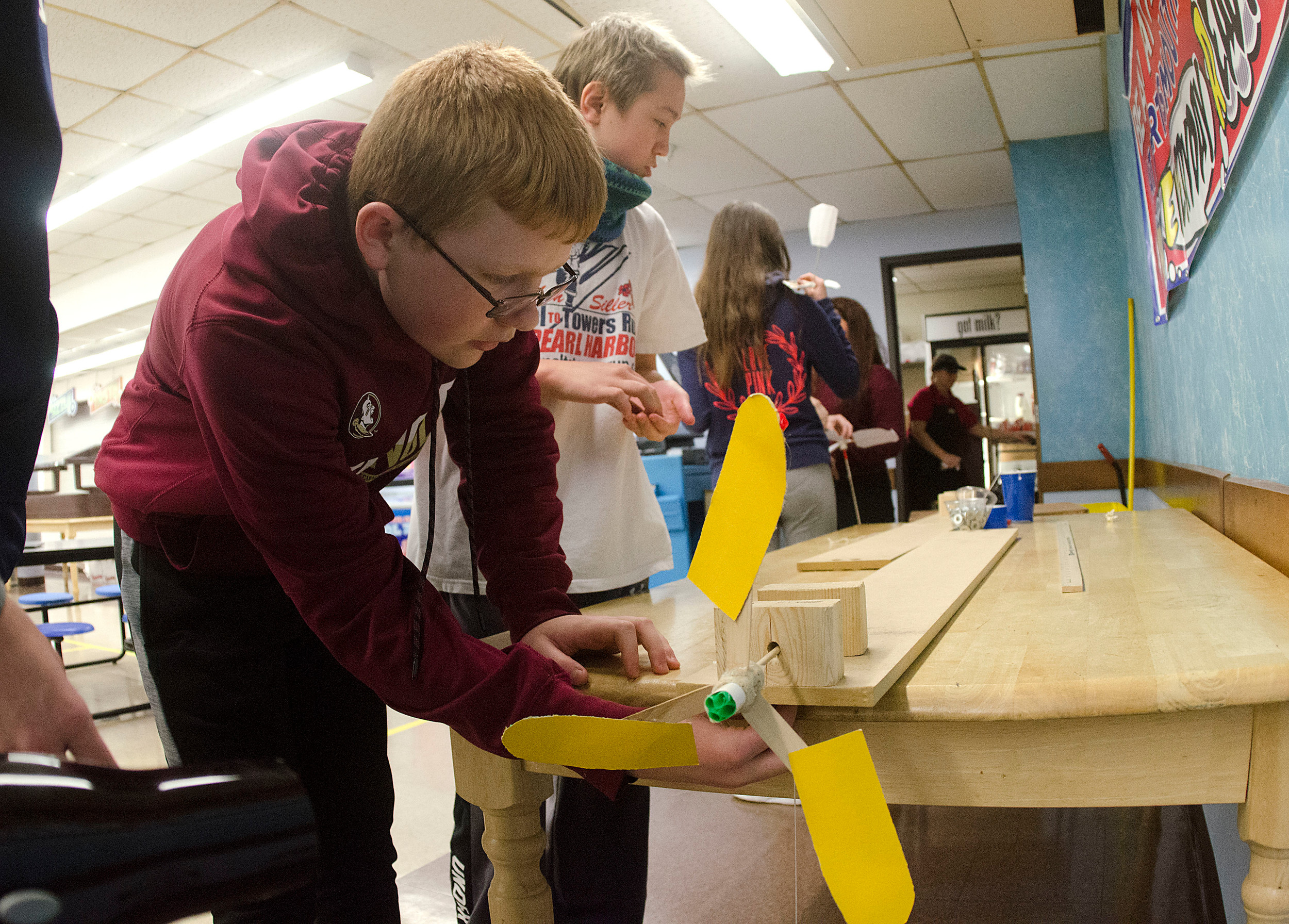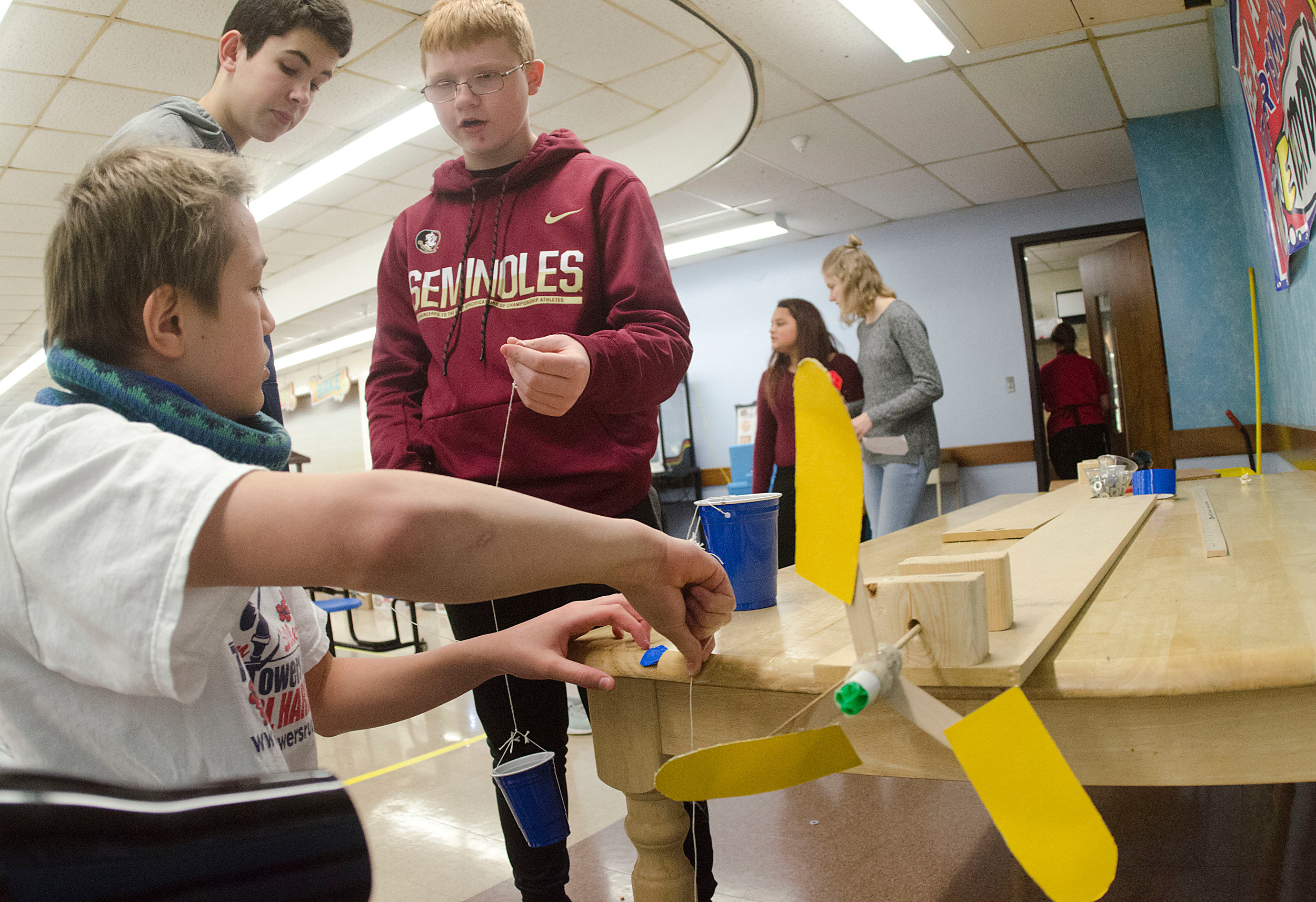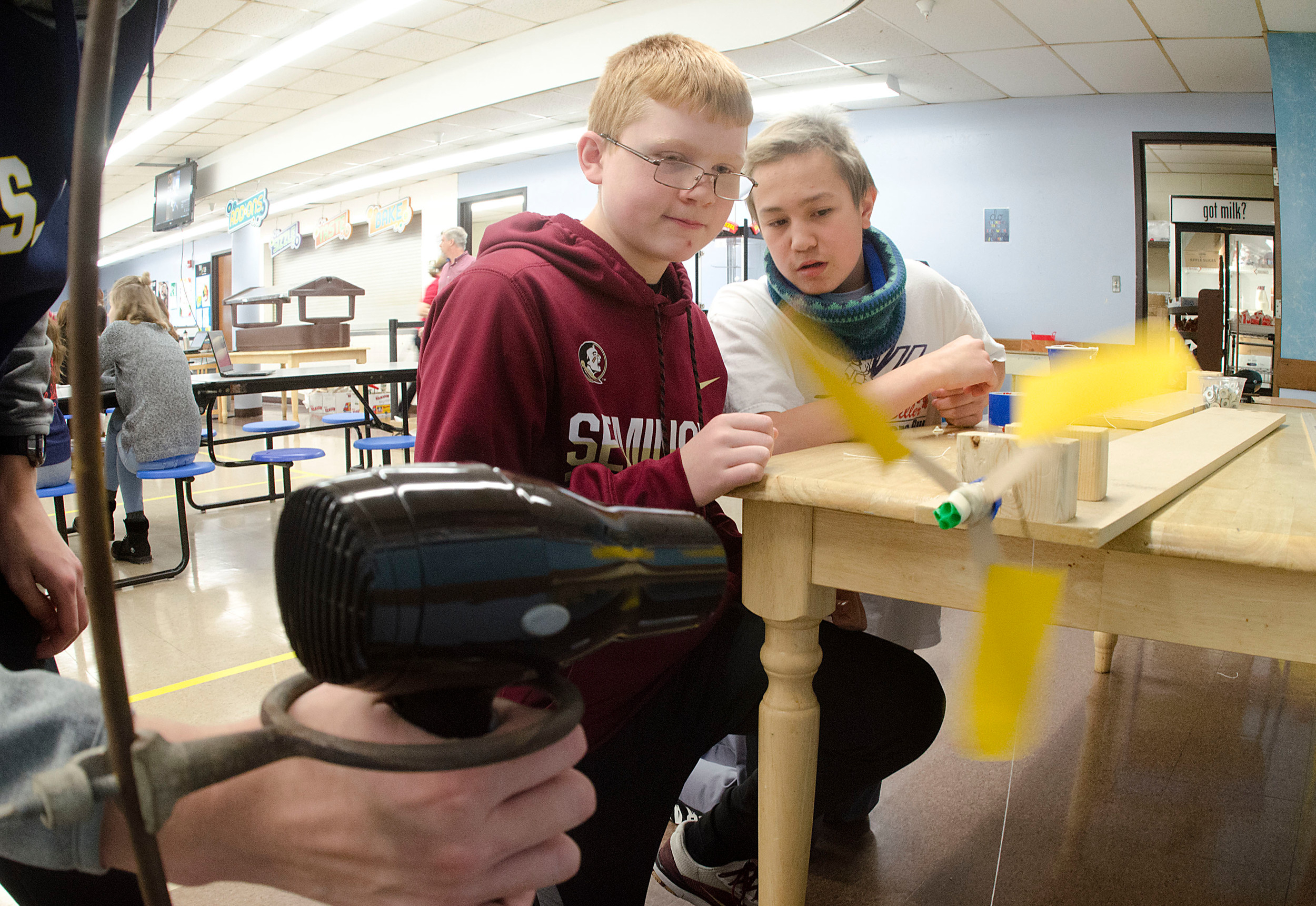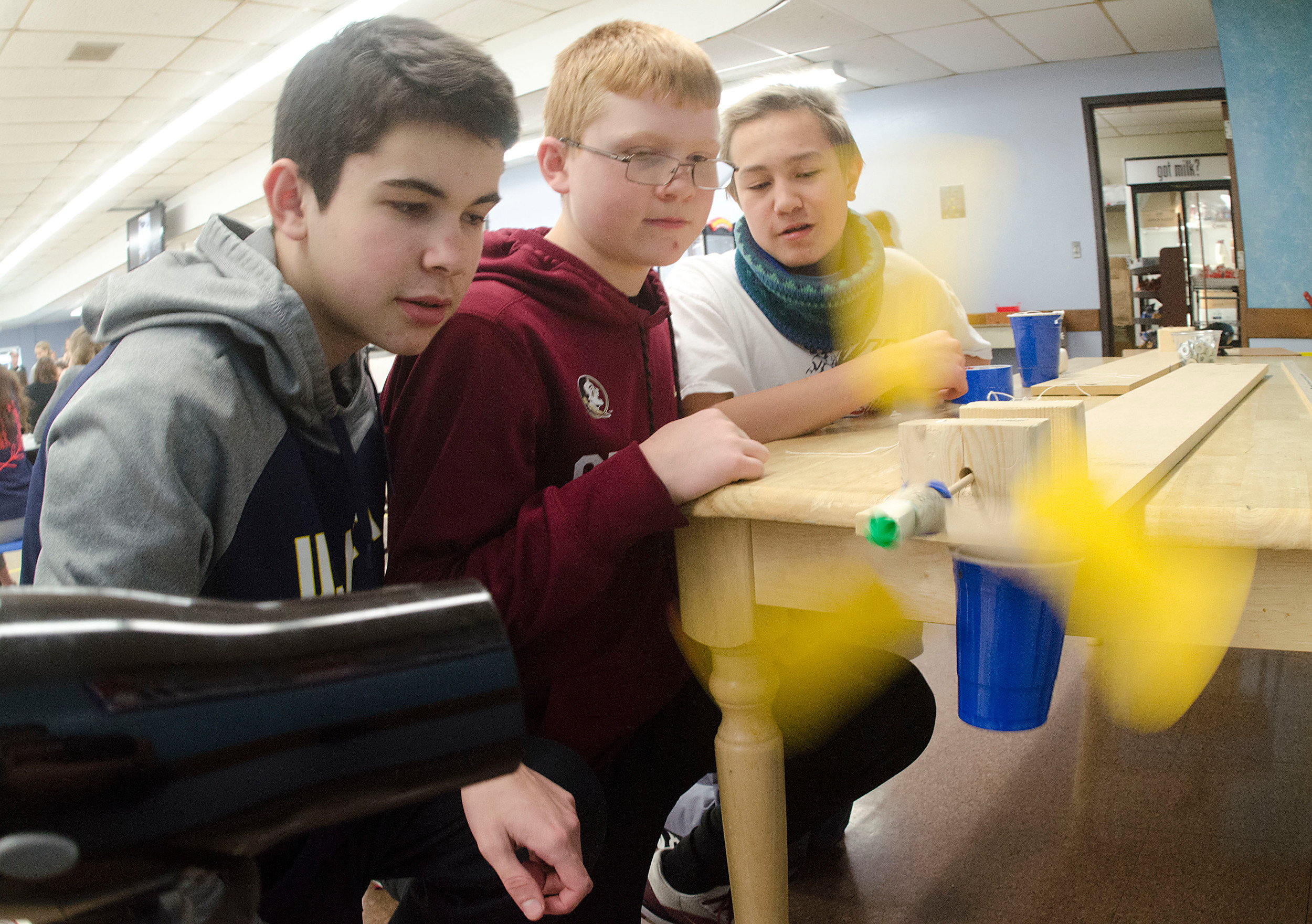- FRIDAY, APRIL 19, 2024
Engineering green solutions to global problems in Portsmouth
Middle school students put thinking caps on for Green Engineering Expo
PORTSMOUTH — John Maedke, Evan Beese and Emmaline Wilson had to deal with a problem most Americans don’t worry about but which afflicts millions of people the world over: dirty …
This item is available in full to subscribers.
Please log in to continue |
Register to post eventsIf you'd like to post an event to our calendar, you can create a free account by clicking here. Note that free accounts do not have access to our subscriber-only content. |
Day pass subscribers
Are you a day pass subscriber who needs to log in? Click here to continue.
Engineering green solutions to global problems in Portsmouth
Middle school students put thinking caps on for Green Engineering Expo

PORTSMOUTH — John Maedke, Evan Beese and Emmaline Wilson had to deal with a problem most Americans don’t worry about but which afflicts millions of people the world over: dirty water.
“Our problem was to find out a way to filter out contaminated water and make it safe for consumption because 844 million people in the world don’t have clean water,” said Emmaline, among the many Portsmouth Middle School eighth-graders who participated in last week’s Green Engineering Expo which was attended by family members.
“Two hundred and eighty-nine thousand children under the age of 5 die each year caused by poor water sanitation,” said Evan, who worked on a solution along with Emmaline.
John, another member of the team, added, “Every minute a newborn baby dies from infection caused by a lack of clean water and an unclean environment.”
Connecting a global problem to a real-world solution was the whole point of the Green Engineering Expo, which was debuted by the school this year.
“The idea was for students to study human interaction with the environment — learning about fossil fuels and alternative fuels and ways to minimize the impact on the environment,” said Erin Escher, the school district’s K-8 instructional science coach.
The Expo also promoted the district’s STEAM (science, technology, engineering, art and math) initiative, he said.
“What’s different from a typical engineering fair is that we’ve invited community businesses and local businesses. We have Newport Solar, Newport Biodiesel, Dr. (Jameson) Chace from Salve Regina University and his hydroponics program, ‘The Future of Hydroponics.’ We have Rhode Island Resource Recovery Corp., Clean Ocean Access,” said Mr. Escher.
“We’re trying to make the connection to what they’re learning in the classroom to, ‘Hey, there are real jobs in these fields and there’s a future here,’” he said.
In contrast to a traditional science fair, students collaborated within a group and used the engineering process to solve a problem assigned to them, said eighth-grade science teacher Dana Reed.
“This is really about getting them through the engineering process and then going back and reevaluating, so it’s more geared toward modern technology and problem-solving,” she said.
The Expo was the culminating event of a unit about the human impact on the environment, said Jenna Sicuranza, another eighth-grade science teacher.
“The kids were engaged in two engineering cycles. They engineered a wind turbine and a water filter, and then they got to choose which of those projects they wanted to take to the next level in design and improving their testing. They’ve put together presentations and are showing their data and evaluations” said Ms. Sicuranza, noting that students appeared excited and engaged when coming up with solutions.
“They love to do the building and it’s really great to see them interact with their peers and their family members,” she said.
Students at work
To make their dirty water potable to drink, John, Evan and Emmaline combined three water bottles and used several different filtration methods.
“We used cotton balls, gravel, sand, activated charcoal and filter paper — like a coffee filter,” said Emmaline.
They measured the impurities in the water before and after filtration and saw improvements in every step of the process. Like true engineers, they tinkered and learned from their mistakes. Evan, for example, said the group determined the paper filter and rocks did a better job than the charcoal.
“Next time we would use more of those materials,” he said.
The students also noticed there was very little water left after filtration due to the number of bottles and filters they used, so they agreed they’d go with only two bottles next time. “We lost a lot of water and it took a long time to get from top to bottom,” Evan explained.
Another group of three students — Maria Chytka, Hailey Patton and Taylor Catterall — also were tasked with filtering dirty water but went about it in a different way.
“We made five different filters and tested to see which one worked the best. We used the same filter screen for each,” said Maria. “We thought this would be interesting because you would know which one did the best job in each area. In order to create an efficient water filter, you would have to use multiple levels of filter media that would do best.”
“We used three grams of cotton balls, 150 grams of sand, 25 grams of activated carbon, one paper filter and 100 grams of small aquarium gravel. And for the filter screen, we used a plastic bag with small holes poked into it,” said Taylor.
The paper filter seemed to do the best overall job, said the girls. Hailey noted that the best results yielded a good pH level.
“It’s drinkable,” she said.
Some of the students said the Green Engineering Expo certainly made them think about the environment and the impact humans have on it. The project even made a few students start thinking about possible careers in the field down the road.
Not John Maedke, however.
“I still want to get a degree in law at Harvard,” he said.
Keywords
Portsmouth Middle School, Portsmouth School Department, STEAMOther items that may interest you

